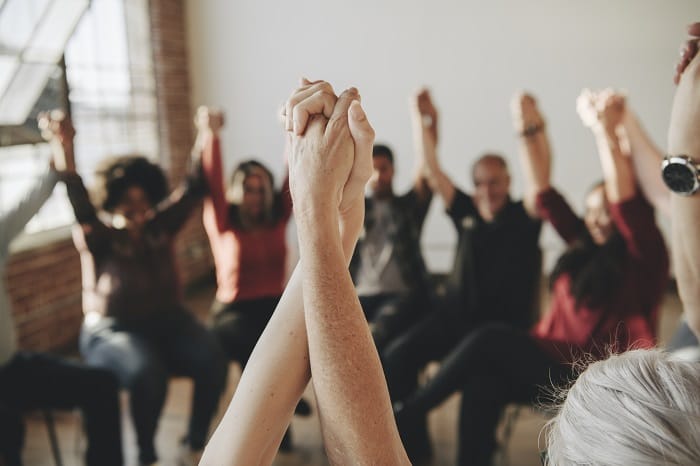Now four years on from the initial pandemic, COVID-19 is still having long-lasting impacts on countless numbers of individuals – both physically and mentally, often with the two areas overlapping.
This is because COVID-19 had many different impacts on individuals depending on their social situation, their work/life balance, and their physical health, both before and after the disease was recognised.
Because of the variety of impacts that this disease had, there are still many who are suffering from the consequences, either as a direct impact of COVID-19 or because of some related factor.
This means that research is still very much ongoing, and the findings are still being treated as new and ongoing phenomena – not just something that has just started occurring out of nowhere.
One study, for example, showed that the COVID pandemic had a significant impact on stress levels, and that this was as a direct result of the repeated waves of coronavirus that occurred. [1]
These stress levels, in turn, lead to further mental health symptoms and struggles such as an increase in depressive symptoms and feelings of loneliness.
To learn more about how the psychological impacts of COVID-19 and its subsequent issues can be treated, call us on 0800 140 4690

Post-COVID-19 syndrome refers to any symptoms that an individual repeatedly experiences as a result of the COVID-19 pandemic, whether this is directly or indirectly.
This can vary from slightly increased stress levels to an overall increase in the individual’s experience of depressive symptoms, the development of anxiety disorders, and other related mental health issues.
There is no way of knowing how many individuals may be struggling with post-COVID-19 syndrome, but the number is thought to be high due to the length of the pandemic’s restrictions and effects in the UK.
For example, due to the amount of time spent in lockdown, many individuals may have missed out on valuable life stages or experienced them in different ways.
Common life events that were disrupted by the coronavirus pandemic include early years in school, time at university, and establishing a career.

The effects of post-COVID-19 syndrome are generally categorised into both physical and mental health issues that individuals have experienced throughout the COVID pandemic, as well as after it.
In one study, [2] these symptoms were categorised into the following areas:
This shows the wide variety of these symptoms, as well as how they may affect individuals differently and at different levels of severity.
To learn more about how the psychological impacts of COVID-19 and its subsequent issues can be treated, call us on 0800 140 4690

Depending on the individual’s symptoms of post-COVID-19 syndrome – as well as any existing mental health issues that they may have struggled with before the pandemic – will affect how long they may struggle with post-COVID-19 syndrome symptoms.
For some individuals this may be a couple of weeks, but for others, it may become a lifelong journey of recovery.
Some symptoms, such as the development of mental health issues like anxiety or the development of symptoms of depression, may mean that an individual spends a long period of time going through extensive therapy in order to treat them.
On the other hand, if an individual begins struggling with issues such as social isolation or loneliness, then this may be able to be treated with simple solutions, such as beginning to attend more social events, or joining a social activity club.

Long COVID refers specifically to the physical health symptoms of the COVID-19 virus, but it can also impact the individual’s mental health if they are struggling for a long period of time.
If an individual is struggling with long COVID, then they may have to stay at home from work or school, abstain from engaging in activities that they previously enjoyed, and generally reduce their activity outside of their home/room for a long period of time.
This can take a long period of time, but with the right treatment, rest and relaxation programs, individuals struggling with the psychological impact of long COVID can be treated effectively and efficiently.
However, it is also important to note that long COVID is still a relatively new disorder, and there is still much research being conducted into its effects, treatments and the longevity of the disorder in general.
To learn more about how the psychological impacts of COVID-19 and its subsequent issues can be treated, call us on 0800 140 4690

If an individual feels that they are struggling with post-COVID-19 syndrome – either with physical symptoms or mental health issues – then it is vital that they seek appropriate care as soon as they are able.
Without wanting to increase the severity of their symptoms, individuals should ensure that they enter a treatment program that is suitable for them, and their specific long COVID/post-COVID-19 syndrome symptoms, and not a ‘one size fits all’ type of approach.
Without getting specialist care for their individual needs, individuals are not able to get the help they need for their specific circumstances, often leading to further issues later in the progression of their condition.
This is why it may also be a good suggestion to keep track of specific symptoms, either through the use of a mood tracker or a physical health diary.
This can be especially useful to medical professionals, as they will be able to see how an individual’s condition has developed, as well as when they may have started experiencing specific symptoms, which may make their condition easier to treat.

Unfortunately, there are instances in which a particular group of individuals may be more likely to develop long COVID, as well as post-COVID-19 syndrome in general.
This is often due to the way in which these particular groups of people may have been subject to the pandemic, as well as the parts of their lives that the pandemic may have directly impacted.
Two of the main groups of individuals that have been affected are listed below, with the reasons for their increased susceptibility to long COVID and post-COVID-19 syndrome explained:
To learn more about how the psychological impacts of COVID-19 and its subsequent issues can be treated, call us on 0800 140 4690

Though mentioned in the previous paragraph, the impact of COVID-19 on young people is not to be underestimated.
By missing the first few years of school – all the way from pre-school groups to starting different years of university – individuals will be far more likely to miss out on valuable life skills that they would have learned during these years.
One study summarised this effect by citing the lack of support from and access to specific infrastructures [3] that they would have otherwise been a part of their healthy development.
From February to July 2020, one study reported the prevalence of anxiety and symptoms of depression in children and adolescents to be 25.2% and 20.5%, respectively – this is estimated to have doubled when compared to pre-pandemic levels [4] – further highlighting the prevalence of issues that were worsened by the occurrence of the pandemic.

The lack of support systems and infrastructure refers, in general, to the support and advice that these young individuals may have had access to while attending school/college/university.
With the introduction of repeated lockdowns and stay-at-home orders, young people would not have been able to have the same conversations and discussions with teachers that they may have previously had the opportunity to do, meaning that these conversations would have gone unsaid and unrecognised.
Often, young children taking part in online learning or classes may not have had support from those at home with them, either.
This is due to the fact that the parents of these young children may have also had their own work to focus on at home, making it hard to manage the demands of their job as well as taking care of young children while in the home.
To learn more about how the psychological impacts of COVID-19 and its subsequent issues can be treated, call us on 0800 140 4690

As a way to summarise the physical and mental health impacts of both long COVID and post-COVID-19 syndrome, it may be beneficial to analyse the societal impacts of both, as well as explore a few of the different impacts of the pandemic in general.
The following subheadings aim to do this, showing the main impacts of the coronavirus pandemic, as well as analysing this with respect to the ways in which it has impacted different groups of individuals in different ways.
Take a look at the following subheadings to see how COVID has impacted individuals, as well as the ways in which it may continue to impact people in the long term:
As many different establishments were shut down as a result of the COVID-19 pandemic, this impacted those who attended them, as well as the benefits that these activities may have granted specific individuals.
Social groups – especially those based inside- had to stop operations in order to comply with social distancing and the transfer of the disease, meaning that many people missed out on valuable social engagements, seriously affecting their physical and mental health over time.
Though many local community groups may have shut down in response to COVID-19, there has also been an increase in the number of individuals who have begun to partake in volunteering activities.
As one study showed in 27 of the 40 cases analysed, volunteering in the food shopping and emotional support categories were the most populated, [5] as well as suggesting that vital community support groups were also finding ways to continue operating within the guidelines to the best of their abilities.

In addition to the struggles that individuals faced on a day-to-day basis as a result of the pandemic, there were also more general issues that the public as a whole faced together.
The most common of these was a growing distrust of the governing system which continued to implement lockdowns, restrictions, and other social distancing measures, whilst failing to follow them themselves.
During this long time period (and when compared to pre-pandemic levels), one study highlighted this growing distrust in governance, [6] highlighting this through a growing defiance towards government-led schemes such as mask-wearing and vaccinations.
As well as differences from country to country, the COVID-19 pandemic also impacted people differently depending on their specific region within these individual countries.
This was a main factor in highlighting the different approaches to supporting residents, providing equal access to care, and looking after individuals within each country.
In the United States, for example, it was found that rural areas, areas populated by non-white communities, and areas of low income were less likely to be able to access coronavirus tests and recieved less information about the pandemic through messaging systems put into place. [7]
This was also found in the UK, though differently in some cases.
For example, vaccines were far harder to come by in central London due to the large number of individuals seeking them, whereas people residing in areas further north were more likely to be offered testing and vaccines, though emergency information systems were less likely to work.

In general, the COVID pandemic highlighted the fact that most countries and systems of infrastructure are not set up to deal with widespread disease and the need for social distancing.
This was made evident by the widespread shutting-down of multiple systems, including transport, workplaces, and schools, as well as the need for better support and acknowledgement for those working from home.
The move toward a greater number of individuals working from home also decreased the need for large office spaces or communal working situations, meaning that a lot of individuals also lost a lot of money as well as experiencing the challenges of moving to an online workstyle.
Despite the drawbacks of the pandemic, there were also some benefits and some areas which experienced greater attention due to the ways in which these factors were impacted.
One of the biggest examples of this is the focus on mental health during lockdowns and even after, with some sources of support continuing on to this day.
Mental health was one of the key areas that was considered when assessing the long-term damage caused by COVID-19.
Although it was becoming less of a stigmatised topic before the pandemic, the occurrence of the worldwide pandemic made it more evident that more and more individuals are seeking support.
This is beneficial as it allows more people to speak more openly about their mental health and therefore receive the care that they need in a suitable time frame.
To learn more about how the psychological impacts of COVID-19 and its subsequent issues can be treated, call us on 0800 140 4690

The physical health impacts of long COVID not only affect the physical well-being of an individual, but these effects can also lead to the development or worsening of mental health issues.
For example, if an individual has been struggling with physical health issues for a long period of time, then this may lead to mental health issues relating to this.
An individual who has been instructed to stay at home for the sake of their health (i.e., the chest pain/joint pain that is associated with long COVID, for example) may experience mental health issues as a result of the loneliness, social isolation, and lack of physical exercise that they may begin to experience.
In addition, being stuck in one place can begin to cause long-term issues without the individual realising, which is why it is vital to provide support to these individuals whenever and wherever possible to minimise the impact of long COVID and its effect on both mental health and the individual’s physical condition.

To learn more about long COVID, post-COVID-19 syndrome, and the ways in which this can impact mental health (including turning to addiction or substance use disorders), get in contact with Rehab 4 Addiction today.
A member of our friendly and professional team is ready and waiting to deal with any query, no matter how serious or trivial it may seem to the individual.
To get confidential advice today, call our support line on 0800 140 4690